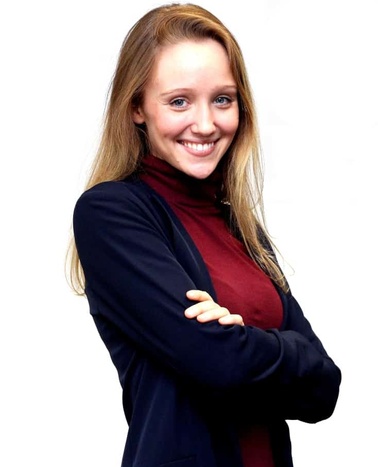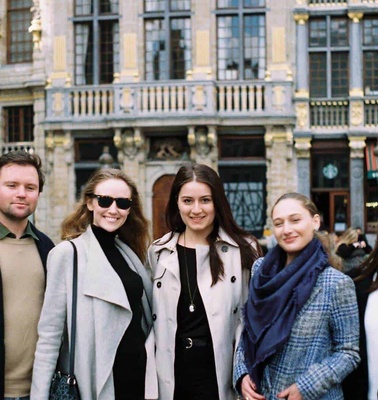
Sophie Kacki
I am a Nashville, TN native, half American and half Polish, and have lived half of my life in Europe, including the past five years pursuing my post-graduate studies. In addition to wanting to learn Spanish and live in Madrid, I chose the MIM-MIR dual because I wanted to both build on my business background and change directions with my studies, in hopes I would end up working for a multilateral organization like the UN. I am currently living and working in New York City with UN Global Compact, supporting sustainability efforts in the private sector, which was a perfect match for my academic background and interests and was exactly what I was hoping the MIR would help me achieve.

"The MIR taught me more than I could’ve ever expected, as much about personal relationships as about political science"
What were you doing before the MIR?
I did the MIM at IE. And prior to the MIM I worked 2 part time jobs, one with a tech company and the other with a social enterprise, both in Nashville, TN
The MIR taught me more than I could’ve ever expected, as much about personal relationships as about political science.
Did you do a dual? If so, which one, why and tell us about the experience
Yes, MIM-MIR. Both we’re drastically different, for two main reasons:
1) The nature of the subjects and thus the discussions and dynamics of the classroom.
2) The networking opportunities available as a management student versus as a global and public affairs student. The MIM was incredibly competitive and relatively structured in terms of discussions and group work. The MIR was a much more colloquial setting, with more sensitive topics and more heated discussions. In addition, as IEGPA students, we were not exposed to the networking opportunities that accompanied being part of the business school.
What did you think about the class trip to Brussels?
I loved it! I got closer with my classmates and was able to meet with our Capstone advisor at NATO. I enjoyed all of the EU institutions and the free time outside of the scheduled visits. However, the scheduling was changed a few times, last minute and without warning, which was frustrating.
Has your definition of diversity changed since studying at IE?
Generally, the first thing one thinks of when they hear diversity, is diversity of skin color or culture. However, since IE, I see the term as more concrete in diversity of thought.
The MIR was instrumental in getting me where I am today, in my personal relationships and on a professional level. Some of my favorite memories are the Brussels trip, the Capstone project, graduation, and organized trips with my classmates outside of IE. Some of my favorite classes were History of International Relations, Game Theory, Climate Politics, and Middle East; the professors from those classes were also the professors I valued most. While I learned more than in any other community I have been a part of, the promotion and organization of the MIR needs to be revised. There is little consistency in the quality of the professors and the degree cannot be sold as a specialized Masters; the MIR was of no added value to the many students who had previously studied political science. The panels and workshops that we attended were often redundant and few opportunities outside of Shuo’s efforts were given to us to support our career paths. The seclusion of Pinar, where we were located, did not facilitate any opportunities for networking outside of our class and program. Overall, I, personally, had a good experience. IEGPA has good leadership and select quality professors. Without the MIR degree I wouldn’t have landed at the UN, and for that I am grateful.
